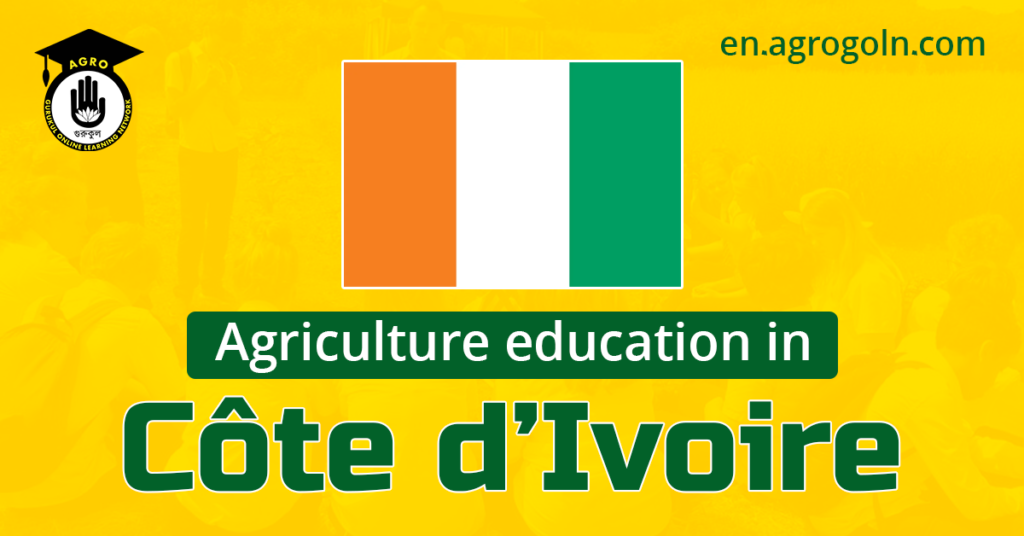Côte d’Ivoire, commonly known as Ivory Coast, is a country nestled in West Africa known for its rich cultural tapestry and diverse ecosystems. At the heart of its economic engine is agriculture. This sector plays a pivotal role in the nation’s GDP and offers employment to a significant portion of the population. Consequently, agriculture education has become an imperative segment of Ivory Coast’s development journey. This article delves into the current state, significance, and future prospects of agricultural education in Côte d’Ivoire.
1. Historical Overview
Historically, agriculture in Côte d’Ivoire was dominated by smallholder farming, predominantly manual and based on traditional methods. Cocoa, coffee, and palm oil are some of the major exports. However, with the realization of the need to diversify, optimize yields, and ensure sustainable practices, there was a growing emphasis on improving agricultural education and research.
2. The State of Agricultural Education Today
A. Formal Education
Agriculture education in the country can be broadly categorized into formal and informal systems:
- Secondary Level: Agricultural topics are integrated into the curriculum of general education. This foundational level introduces students to the basics of agriculture, animal husbandry, and forestry.
- Tertiary Level: Various institutions in Côte d’Ivoire offer diploma and degree courses in agriculture and its related disciplines. The Université Félix Houphouët-Boigny, for instance, has faculties dedicated to agricultural science, providing bachelor’s, master’s, and doctoral programs.
B. Vocational Training
Apart from formal education, vocational training centers are instrumental in imparting practical skills. These centers, often in collaboration with international agencies, offer courses in crop production, poultry farming, aquaculture, and more.
C. Informal Education
This primarily includes traditional knowledge passed down through generations. Elders, experienced farmers, and community leaders play a pivotal role in imparting knowledge about indigenous crops, traditional farming techniques, and local best practices.
3. The Significance of Agricultural Education
Agricultural education is not just about farming practices; it’s an all-encompassing domain that can drive socio-economic development. Here’s why it’s significant for Côte d’Ivoire:
- Economic Development: With agriculture being a primary economic activity, educated farmers mean better yield, optimized resources, and sustainable practices. This has a direct impact on the country’s GDP and export potential.
- Sustainability: Modern agricultural education imparts knowledge about sustainable farming practices. This is crucial for preserving the country’s rich biodiversity and ensuring long-term agricultural viability.
- Diversification: A well-rounded agricultural education helps farmers diversify their crops and livestock, leading to improved food security and reduced dependence on a single crop.
- Empowerment: Education provides farmers with better access to market information, technological advancements, and new techniques, enabling them to make informed decisions and negotiate better prices.
4. Challenges Facing Agricultural Education
While there are many strides made in the realm of agricultural education, several challenges persist:
- Limited Resources: Many educational institutions face a dearth of resources, be it in terms of trained educators, infrastructure, or advanced equipment.
- Gap between Theory and Practice: Theoretical knowledge is often not supplemented with hands-on experience, making it challenging for students to apply their learnings in real-world scenarios.
- Inaccessibility: Especially in remote areas, access to quality education and training is limited. This can be attributed to geographical barriers, financial constraints, or lack of awareness.
- Cultural Barriers: In certain communities, traditional farming methods are deeply rooted, and there’s resistance to adopting modern techniques, making the education process challenging.
5. The Way Forward
A. Collaboration with International Entities
Collaborating with international agricultural organizations can help bring in expertise, funding, and advanced training methodologies.
B. Emphasis on Practical Training
Institutions should establish farm labs and collaborate with local farmers to ensure students receive ample practical exposure.
C. Technology Integration
From leveraging e-learning platforms to introducing students to modern farming technologies like drones or data-driven tools, there’s a vast scope for integrating technology into agricultural education.
D. Community Engagement
Engaging local communities, understanding their challenges, and customizing the education process can ensure better receptivity and results.
E. Continuous Learning
Agriculture is an evolving field. It’s essential to have continuous learning programs for farmers, ensuring they stay updated with the latest trends, techniques, and technologies.
6. Conclusion
Agricultural education is the backbone of sustainable development in Côte d’Ivoire. With the country’s economic landscape heavily influenced by agriculture, the emphasis on improving and modernizing agricultural education becomes paramount. By addressing existing challenges and capitalizing on new opportunities, Côte d’Ivoire can pave the way for a brighter, more sustainable future, not just for its farmers but for the nation as a whole.

